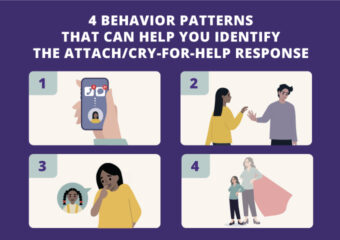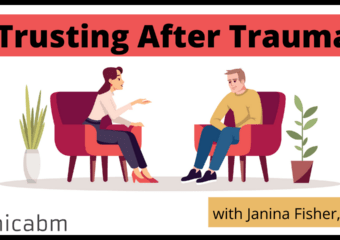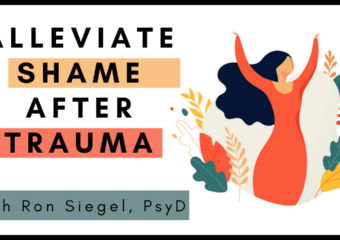After trauma, there’s one (critical) stage of healing that can often feel elusive. You see, even when a client has made significant progress in therapy, they often still report feeling numb, and not fully present in their own life. That’s why interventions designed to help clients reconnect with their sense of vitality and pleasure can […]
[Infographic] 4 Signs of the Attach/Cry-for-Help Response
When people are in distress, seeking out the support and comfort of others can be a natural response. But for clients who’ve experienced trauma, this response can sometimes signal something more. Their persistent attempts to elicit help from others may indicate that they’re stuck in the attach/cry-for-help response. So how can we better recognize this […]
When Trauma Keeps a Patient from Trusting Their Practitioner, with Janina Fisher, PhD
As practitioners, we know how important it is to build trust with clients. But when a patient has a trauma history, trust may not come easy – and rightfully so. So, how can we go about building healthy trust in the therapeutic relationship with these clients? In the video below, Janina Fisher, PhD, shares how […]
A Simple Metaphor to De-Shame a Client’s Trauma Response, with Ron Siegel, PsyD
After a traumatic event, a client might feel deeply ashamed by how they responded to the situation. Perhaps they froze and now blame themselves for not fighting back. Or, maybe they ran away, but now regret not standing up for themselves. As clinicians, we’re able to recognize that these reactions happen at the level of […]
Is Your Patient “Feeling” Unworthy? What May Be the Underlying Cause, with Janina Fisher, PhD
Trauma can leave a patient with a deep sense of unworthiness. On top of that, your client might even blame themselves for feeling this way. But as we know, there’s always a purpose behind a patient’s response to trauma. And sometimes, the challenge is getting your patient to see the wisdom behind their response – […]




